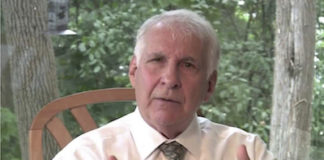Tag: antidepressants and suicide
Antidepressants and the National Suicide Epidemic
We encourage young people to see themselves as fragile creatures whose brains can go haywire for any reason, or no reason at all. Then we tell them they have the “disease” of depression and ply them with drugs with a known link to worsening depression and suicidality going back for decades. How many more will have to die before this changes?
Why My Daughter Died and I Lived
To be a parent of a suicidal child is to be in a terrible position, where you hold in your hands the life most valuable to you and know that any slip of your hands may end that life. In the 1970s, my suicidality was treated nonmedically and I lived. In the 2000s, my daughter Martha’s suicidality was treated medically and she died.
Adolescent Suicide and The Black Box Warning: STAT Gets It All...
STAT recently published an opinion piece arguing that the black box warning on antidepressants has led to an increase in adolescent suicide.
It is easily debunked, and reveals once again how our society is regularly misled about research findings related to psychiatric drugs. STAT has lent its good name to a false story that, unfortunately, will resonate loudly with the public.
Suicides Are Increasing – And So Are Antidepressant Prescriptions
Disturbingly, our study and others reveal that the black box warning is now ignored in many countries, since antidepressant prescriptions for children are on the rise again. Despite increasing certainty that antidepressants are ineffective and likely cause suicidal behavior in young people, psychiatry continues to claim that they reduce suicide risk.
Suicide in the Age of Prozac
During the past twenty years, the American Foundation for Suicide Prevention and American psychiatry have adopted a "medicalized" approach to preventing suicide, claiming that antidepressants are protective against suicide. Yet, the suicide rate in the United States has increased 30% since 2000, a time of rising usage of antidepressants. A review of studies of the effects of mental health treatment and antidepressants on suicide reveals why this medicalized approach has not only failed, but pushed suicide rates higher.
Rising Rates of Suicide: When Do We Acknowledge That Something Isn’t...
Scapegoating a purported unseen "illness" may provide temporary comfort from acknowledging the horrors and injustice of the world, but it is a delusion — and one with fatal consequences for many. When 45,000 people a year would rather die than live in this world any longer, it might behoove us all to consider what is happening in the world to cause this.
Olga Runciman: Moving Beyond Psychiatry
This week on the Mad in America podcast we interview Olga Runciman. Olga is an international trainer and speaker, writer, campaigner, and artist. In this interview, we discuss Olga’s professional and personal experiences of the psychiatric system and how she now helps and supports healing and recovery in others.
Peter Breggin, MD: The Conscience of Psychiatry (part 2)
Dr Beggin tells us about recent developments with the Michelle Carter trial, and we discuss alternatives to psychiatric drugs and the value of the therapeutic relationship.
Michelle Carter Part IV: Did She Tell Conrad to “Get back in the...
There is no text, transcript or recording that demonstrates that Michelle ever said anything to Conrad about getting back in the truck to die. The DA’s entire case is based upon the “confession” of an irrational girl on antidepressants who has been trying to communicate with her boyfriend in heaven via phone.
Bob Fiddaman: Taking on the Pharmaceutical Regulators and the Seroxat Scandal
Today on the MIA podcast we talk to Bobby Fiddaman about his experiences of the mental health system, his research and campaigning over the years and his relationships with the UK and US pharmaceutical regulatory bodies.
Michelle Carter Part III: DA Goes After Her Expert Witness to...
The DA’s office asked the judge to stop me from any further writing about the Michelle Carter trial. This extraordinary motion, called prior restraint or pre-publication censorship, is a major assault on freedom of speech and freedom of the press. And there is a public health and safety reason for writing about this case.
Part II: Michelle Starts Prozac and Sees the Devil
By 2011, anyone who read the scientific literature would have known that children cannot tolerate SSRIs and should not be given them. Neither Conrad nor Michelle seemed to have been warned about the common adverse effects (such as nightmares and compulsive suicidality) of the SSRI antidepressants they were on.
People of Great Britain! Our Beast Descends Upon Your Children
Scientific evidence indicates that antidepressants do not help children. In light of such high risks to the child’s wellbeing, these psychiatric chemicals are clearly doing more harm than good. What kind of society would permit this assault on its children?
Mo Hannah: Changing the Teaching of the Biological Model
Maureen Hannah, a Professor of Psychology at Siena College, New York, tells of experiences with the psychiatric system, both personally and professionally, and how poor care in the mental health system led to an unexpected and devastating family loss.
Jim Gottstein: Patient Rights in Mental Healthcare
Jim Gottstein, president and founder of the organisation Law Project for Psychiatric Rights, talks about his own experiences with the psychiatric system, patient rights in mental healthcare and the recent trial between Wendy Dolin and the UK Pharmaceutical manufacturer GlaxoSmithKline.
Kevin P Miller: The Powerful Stories of Families Harmed By Psychiatric...
Kevin is a filmmaker, writer and journalist and his films have won numerous international Film and Television awards, he talks about his approach to film making and his thoughts on how we treat people that ask for help with their mental health.
Peter Gøtzsche: The Pharmaceutical Manufacturers Dominance of Mental Healthcare
Professor Peter Gøtzsche is Director of the Nordic Cochrane Centre in Denmark and discusses his background in research, his views on antidepressant prescribing and how pharmaceutical manufacturers have influenced mental healthcare.
Peter Groot: A Novel, Practical Solution For Those Withdrawing From Psychiatric...
Doctor Peter Groot from the User Research Center of the Maastricht University talks about Tapering Strips, which help users who want to withdraw from their psychiatric drugs safely and in a controlled way.
Terry Lynch: Why Psychiatry Has Pursued a Purely Medical Approach to...
Doctor Terry Lynch is a GP, psychotherapist, author and mental health educator. Ten years into his career as a GP, he became very concerned about the medical approach to emotional and mental suffering and was not prepared to remain silent.
The Violence-Inducing Effects of Psychiatric Medication
On May 17, 2017, we learned that Chris Cornell of Soundgarden had reportedly committed suicide by hanging. Perhaps an “addict turned psychiatric patient,” like so many, Chris Cornell seemed to have left the frying pan of substance abuse for the fire of psychiatric medication risks.
Marion Brown: Psychiatric Drugs, Human Givens Therapy and Medically Unexplained Symptoms
Marion Brown is Psychotherapist who works with the Human Givens approach to supporting people in emotional or psychological distress, she has become increasingly concerned about the effects of psychotropic medications on patients.
Girl in Facebook Live Hanging was Prescribed Antidepressant
From the Miami Herald: Naika Venant, a 14-year-old girl who died by suicide this past January, had been prescribed Zoloft, an antidepressant with a black box...
Is Society or Psychiatry to Blame for the “Seriously Mentally Ill”...
Adults in the U.S. diagnosed with “serious mental illness” die on average 25 years earlier than others. This is not controversial, as establishment psychiatry and its critics agree. What is controversial is who is to blame?
Antidepressants Increase the Risk of Suicide and Violence at All Ages
Although the drug industry, our drug regulators and leading psychiatrists have done what they could to obscure these facts, it can no longer be doubted that antidepressants are dangerous and can cause suicide and homicide at any age.
What’s the Harm in Taking an Antidepressant?
We know that all drugs have side effects. That’s just part of the deal right? But is it really possible that an antidepressant can cause a sane person to act like a cold-blooded criminal?
































